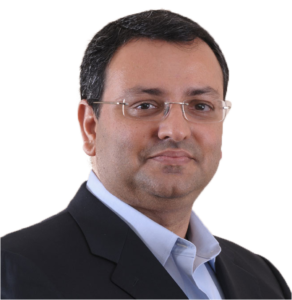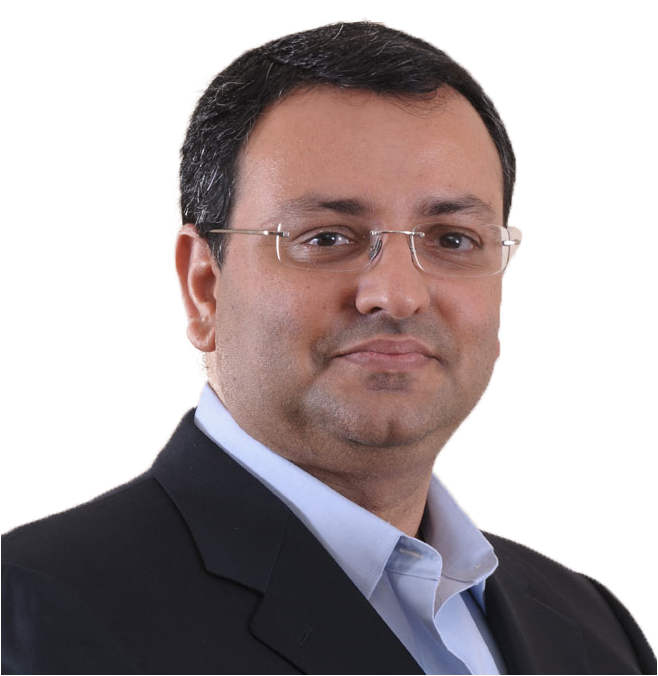New Delhi– The sacked chairman of Tata Sons, Cyrus P. Mistry, has indicated that the Tata group was in a bad financial shape, painting a picture of several trouble spots in the group companies.
In his five-page angry letter to the board members of Tata Sons and the trustees of the group, Mistry said that a realistic assessment of the fair value of the “legacy hotspots” like IHCL, Tata Motors PV, Tata Steel Europe, Tata Power Mundra and Teleservices could “potentially result in a write down over time of about Rs 118,000 crore ($18 billion).”

He said the capital employed in these companies had risen from Rs 132,000 crore to Rs 196,000 crore, due to operational losses, interest and capex. “This figure is close to the networth of the group which is at Rs 174,000 crore,” thus painting a picture which shows up these companies in a precarious situation.
Mistry was removed from the position of chairman by the Tata Sons board on Monday, reinstating Ratan Tata to the post after four years, in an interim capacity.
A Tata group spokesperson said they had nothing to comment on Mistry’s letter. The action by the Tata Sons board has shaken up the market capitalisation of many group companies, with some of them showing sharp declines.
Mistry said in the letter that the company’s action to suddenly remove him without enough explanation not only damaged his reputation, but also caused “immeasureable harm” to the group’s goodwill.
Mistry also said that he was pushed to a position of a “lame duck” chairman.
“The sadness of the action, and the lack of explanation has led to all manner of speculation and has done my reputation and the reputation of the Tata Group immeasureable harm,” Mistry wrote in the letter, a copy of which is available with IANS.
The letter was sent to the directors and trustees from Mistry’s Tata mail id a day after he was removed from the post.
Mistry said he was “shocked” by the “invalidity and illegality of the business that was conducted” by the board in its meeting on October 24.
“I cannot believe that I was removed on grounds of non-performance,” he said.
“I hope you do realize the predicament that I found myself in. Being pushed into the position of a ‘lame duck’ Chairman, my desire was to create an institutional framework for effective future governance of the group,” he added.
The Tata Group has already moved caveats in the Supreme Court, the Bombay High Court and the National Company Law Tribunal on October 25, in a bid to pre-empt any ex-parte order in case Mistry takes recourse to legal action.
The Tata Sons board had also constituted a Selection Committee to choose a new Chairman. The committee comprises Ratan Tata, Venu Srinivasan, Amit Chandra, Ronen Sen and Lord Kumar Bhattacharyya.
Mistry in his letter said: “Prior to my appointment, I was assured that I would be given a free hand. The previous chairman (Ratan Tata) was to step back and be available for advice and guidance as and when needed.”
He said that after his appointment, the Articles of Association were modified, “changing the rules of engagement between the Trusts, the Board of Tata Sons, the Chairman, and the operating companies. Inappropriate interpretation indeed followed.”
He stated that the foreign acquisition strategy, with the exceptions of Jaguar Land Rover and Tetley, “had left a large debt overhang”.
“The European steel business faced potential impairments in excess of $10 billion, only some of which has been taken as of date. Tata Chemicals still needs tough decisions about its UK and Kenya operations,” Mistry added.
Touching upon almost all sectors of Tata’s business, he said Tata Capital had a book that required significant clean up on account of bad loans to the infrastructure sector.
“Of all the companies in the portfolio, the telecom business has been continuously haemorrhaging. If we were to exit this business via fire sale or shut down, the cost would be $4-5 billion. This is in addition to any payout to DoCoMo of at least a billion plus dollars.”
He talked about “fraudulent transactions” of Rs 22 crore in the case of Air Asia involving non-existent parties in India and Singapore. He also railed against Ratan Tata’s pet Nano project, saying it had entailed a loss of Rs 1,000 crore and should be “shut down”.
Mistry said all these challenges have made him take many tough decision with “sensitive care to the group’s reputation”.
The $100 billion group employs some 700,000 persons.
Regarding the Tata Sons and Singapore Airlines venture that gave birth to Vistara, Mistry said: “Without the benefit of time and experience to fully evaluate the proposal, I had to accept that Tata Sons would take a 51 per cent stake in a $100 million joint venture.”
Taking a dig on Ratan Tata, he said: “The passion for the airlines sector has led Mr Tata to continue his involvement with the strategy of the two airlines.”
Mistry claimed that despite all challenges, the operating cash flows of the group have grown at 31 per cent compounded per annum. The Tata Group’s valuation from 2013 to 2016 increased by 14.9 per cent per annum in rupee terms.





